As talks of vaccines acquire a shrill pitch, it is time to look back at some of the essential workers who saw us through the hard days of the lockdown in the past few months.
The mortuary and ambulance staff of King Edward Memorial (KEM) hospital, one of Mumbai’s biggest public hospitals, spoke to Citizen Matters about their life experiences in 2020 – an extraordinary year which was filled with fear and trepidation.
But, they could not stop.
The ‘leader’
Senior Mortuary Attendant, Kashinath Raghunath Mugdar, is an old hand. Having witnessed the mortuary overflow after the 1993 communal riots, he thought he had seen it all. That was the time when it was impossible to identify some of the bodies, he says. But the families wanted to claim them anyway.
In 2020, though, families didn’t step forward to claim the bodies of their dear ones. “There were no takers for patients who died due to coronavirus,” he says.
Kashinath, popularly known as Balu in the Hospital, is proud to have worked with the late George Fernandes, veteran socialist leader.
Kashinath says several class 3 and 4 workers fled from the hospital fearing death. “I assured the KEM hospital Dean Dr Avinash Supe and Forensic Head of Department Dr Harish Pathak that we will manage with whatever staff was available,” he says.
When the first Covid-19 patient’s dead body arrived in their mortuary, no one knew how deadly the virus was. “A middle aged woman’s body had arrived in mortuary. Her COVID19 report was awaited. By then, four of our mortuary staff had handled the body,” he says. “Two young female doctors informed the mortuary staff about the positive report. Instantly, everyone in mortuary was praying for their lives.”
Kashinath then asked for PPE suits, N-95 masks and gloves. By the time they got the equipment, the body was already with them for more than 18-hours. “My fingers were numb,” he says.
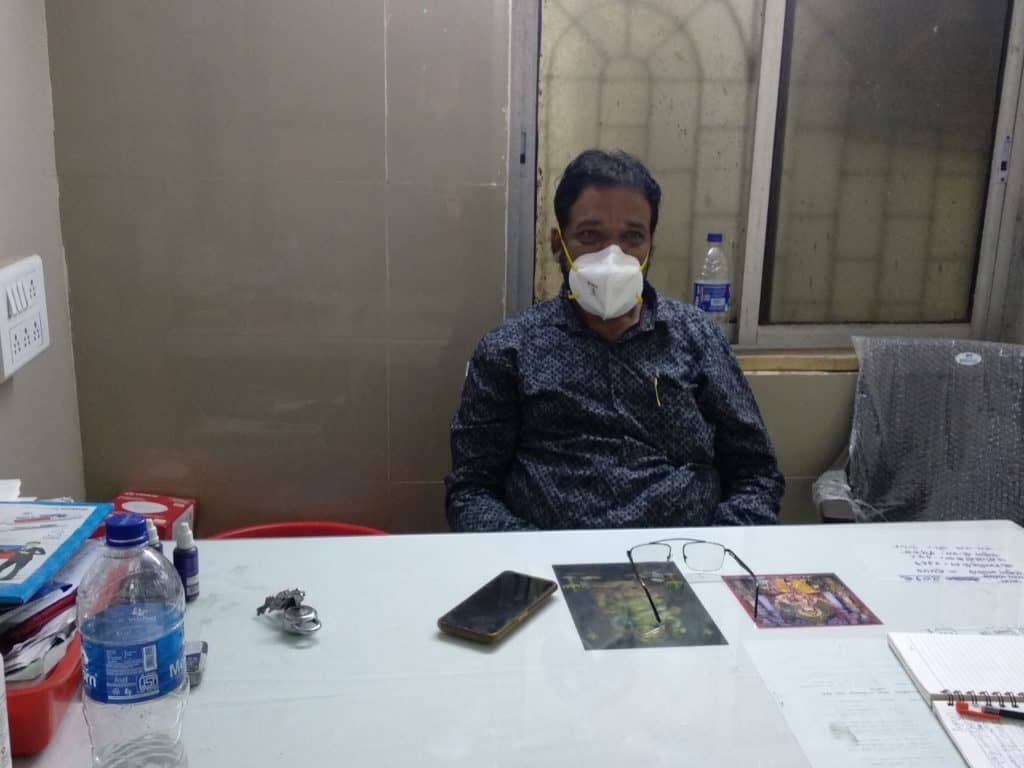
Kashinath reached his home in Naigaon near Dadar to find is family fearful for him. They wanted him to quit his job and move to their village in Ratnagiri district. He says he could not quit because he knew if he did, others might follow suit.
He tested negative thrice, but the fourth time, the virus had entered his body. He feared for especially for his one month old grandchild.
But the man repeats “darr ke aage jeet hai” (victory stands at corner of all fears) several times while narrating his story.
Kashinath successfully triumphed over his fears.
Father of a new born
Sankesh Divekar is a mortuary attendant, hired on contract. Since he is not an employee, neither does he enjoy the perks nor the job security. When the pandemic struck, he agreed to bring dead bodies from the COVID19 ward to mortuary with Kashinath.
His wide had just delivered a baby girl and he was terrified to disclose to her that he was handling dead bodies of COVID19 patients.
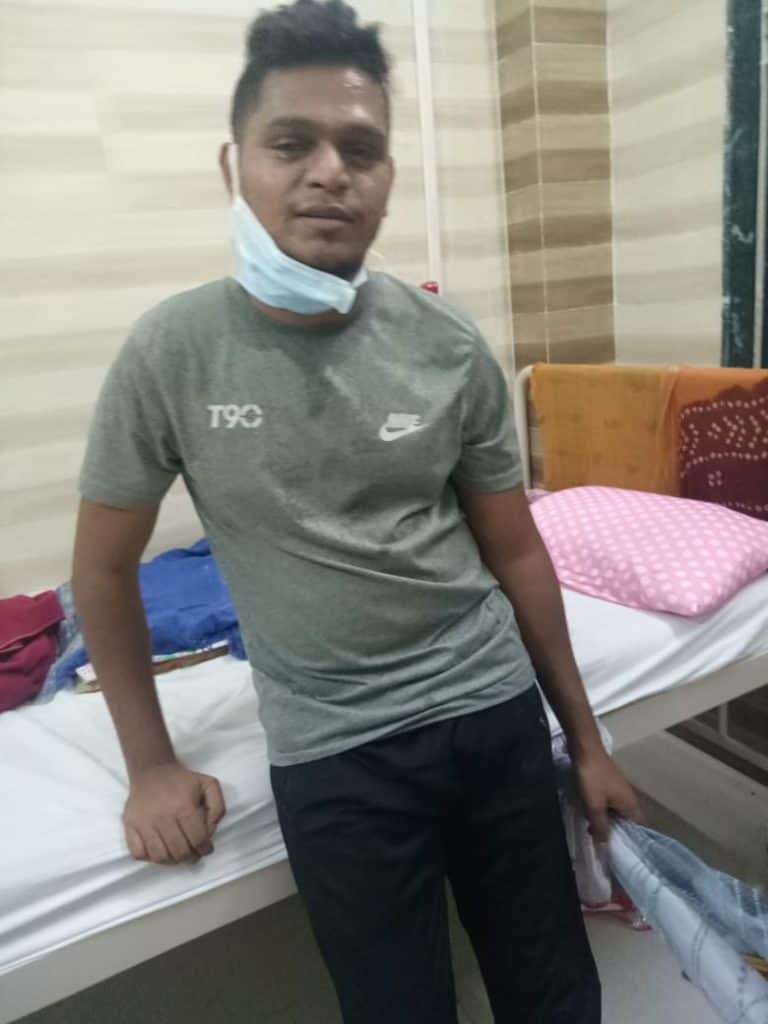
“The need for a job can erase the fear,” he says. Sankesh says dead bodies had piled up in the wards. They had to get down to work.
Wearing the PPEs with layers of masks, gloves, hooded caps, face shield, goggles, gowns and shoe covers was exhausting and tiresome. “Although the distance between mortuary and ward is hardly one and half kilometres, it felt like the lengthiest journey when when was in a PPE,” he says. He had rashes all over the body as a result of being in a PPE for long hours in the Mumbai heat.
Sankesh Divekar was the first attendant among staff in mortuary to test positive for Coronavirus.
When Sankesh realised he was positive, he began to cry and even collapsed in the mortuary. Shankar Vaghela, his subordinate, controlled him. The day after his report arrived, his wife tested positive too and it was time to worry about their two month old our baby girl who was being breastfed. “Our child was in kept in jholi (baby hammock) tied between cots,” he says.
The outcast
Shriram Pawar, another KEM Hospital Mortuary Attendant was locked inside the house by his neighbours when they reaised he was working with patients who contracted COVID19.
“My building residents knew that I work in KEM Hospital. They were also aware that I work in the mortuary. When the hospital turned into Covid centre they forced me to not to visit my house,”
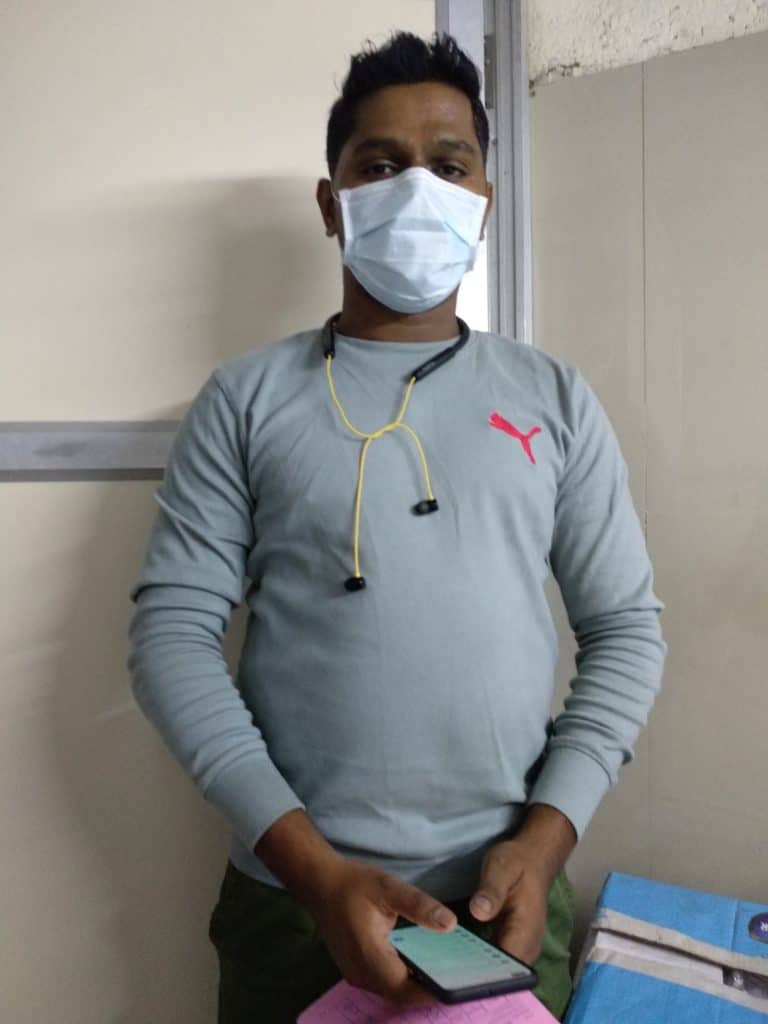
Left with no choice Pawar decided to stay back closer to his workplace. “When I tested positive, they locked my family inside the house,” he adds.
The ambulance driver
Nitin Badekar drivers the ambulance at KEM Hospital. He started work on a contractual basis in April 2020. His ambulance ferried about 1000 COVID19 patients bodies to Worli or Shivaji Park crematorium.
“Initially there were no helpers available to carry the bodies,” he says, he carried the bodies with the help of the mortuary staff. “The authorities were ready to pay huge money but no one wanted to risk their life. I agreed to do it as they promised to pay me Rs.50, 000 per month. I didn’t tell my family where I was working,” he says.
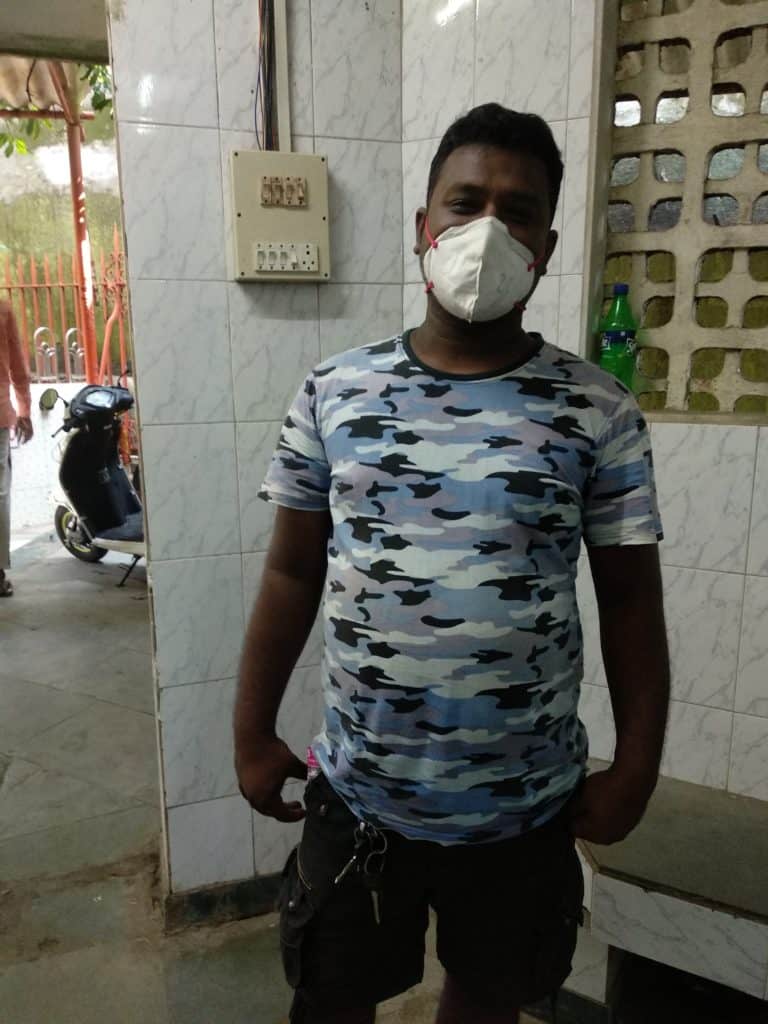
Although roads were empty due to the lockdown, long queues were formed outside the crematorium to dispose off the bodies.
Those residing around the crematorium were very abusive, he says.
The young migrant
One of the youngest staff in KEM Sahil Shaikh hails from Shravasti district in Uttar Pradesh. He says when migrants were reaching to their natives in UP, Bihar and Jharkhand, he reversed the journey to reach Mumbai.
With 13 mouths to feed, Sahil rushed to Mumbai for job. “I stayed in mortuary, slept with the dead bodies of those who had died of COVID19,” he says.
For Sahil hunger is a worse enemy than the virus. He says if he dies, his family cannot even shed tears because they had been hungry for days. “Tears also roll down only when the stomach has food in it,” he says.
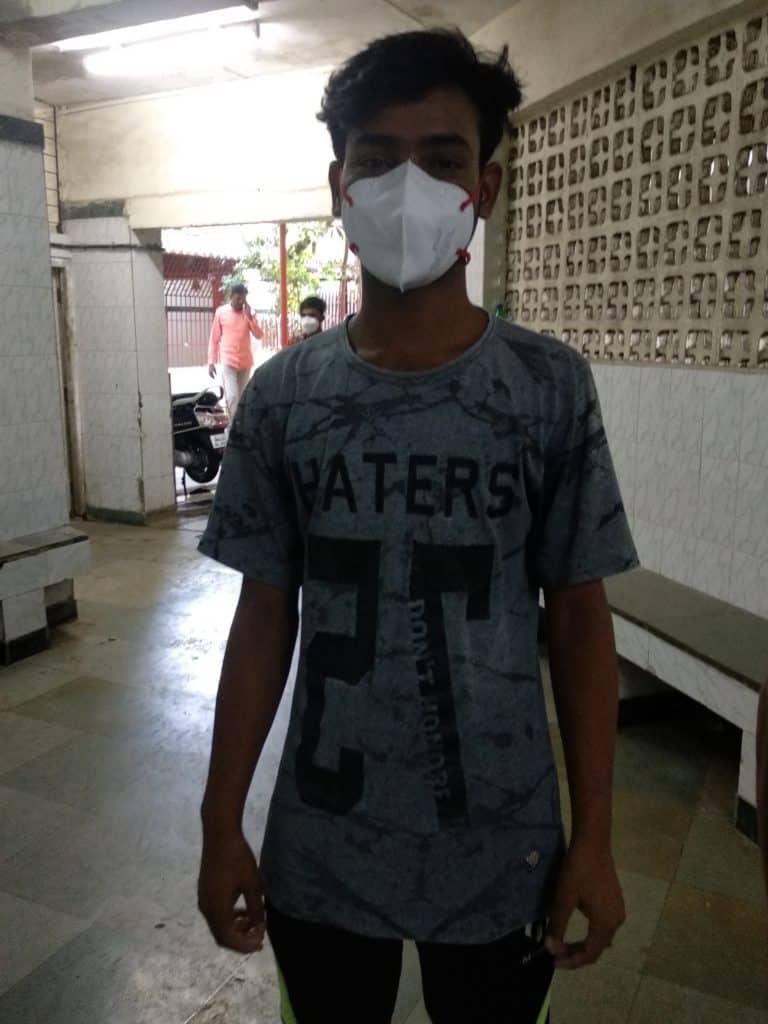
Today, he has saved more than one lakh rupees in his bank account and he now plans to go back to his village and start a business.